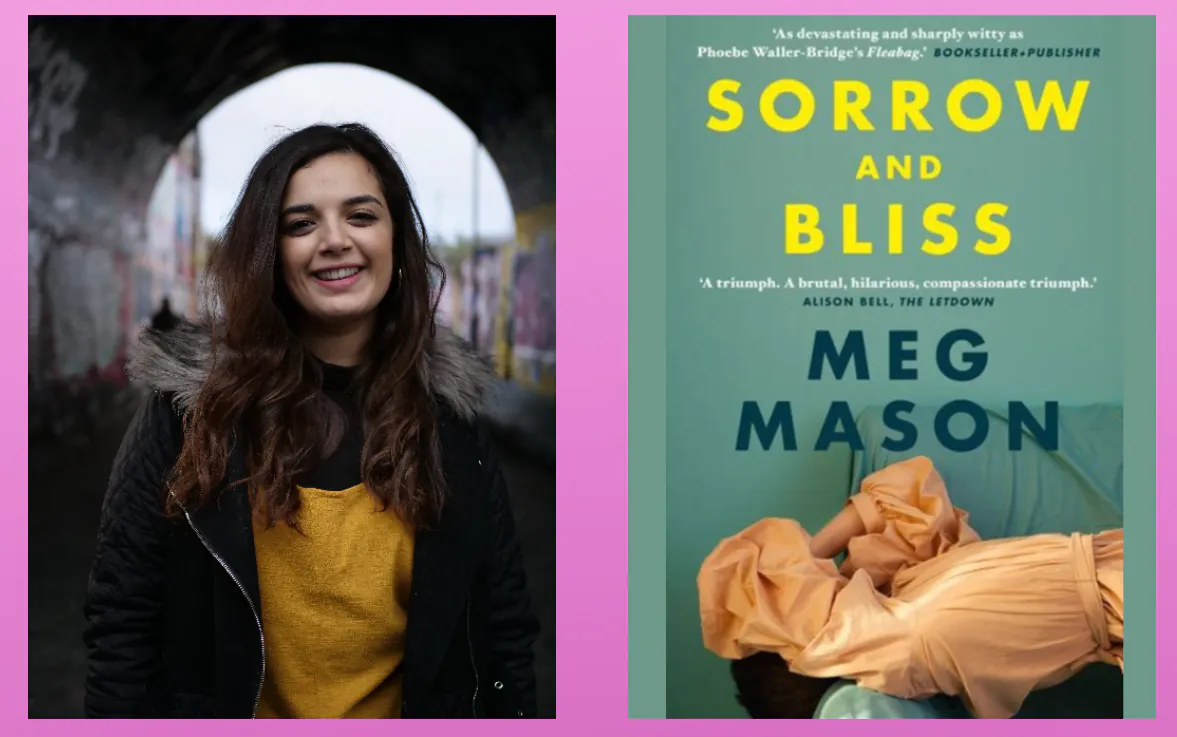Passage That Changed Me: Sheetal Mistry on Meg Mason’s Sorrow and Bliss (Opens in a new window)

My depression doesn’t define me, and Meg Mason helped me see that
Not a lot of people know this, but I’ve had depression since I was 16.
The last 18 months have been exceptionally difficult, in a way that has irrevocably changed me. I feel like I'm only just finding my way back to myself – but it’s a new self, a self that didn’t exist before, a self I’m still trying to get to know. And one of the most difficult feelings to get to grips with has been the building self-pity, the idea that depression has happened to me, and that is who I am now: a person who's depressed. I've been left feeling powerless, purposeless and full of pain.
I picked up Meg Mason's Sorrow and Bliss because I've been craving more literature exploring the messiness of mental health, and the lovely cashier in Waterstones couldn’t recommend it highly enough. When I got to the end of this paragraph, I had to stop and take a breath:
"I know it hasn't been that long but this is what I have been able to see since then: things do happen. Terrible things. The only thing any of us get to do is decide whether they happen to us or if, at least in part, they happen for us...And I wonder, is there any way you could come to see that what you've been through is for something? Is it why you feel everything and love harder and fight more ferociously than anyone else? Is it why you are the love of your sister's life?... Why is that, if not for the life you have lived, as someone who has been refined by fire?"
Meg Mason’s, Sorrow and Bliss
The paragraph is part of a letter written to the protagonist from her mother, in response to the protagonist's long-term struggle with her mental health. I felt like it was written to me.
For months, I've been sitting in a pit of apathetic grief. Forever changed by a horrific few months and watching on as the world continued to turn around me. But reading this cracked that protective shell of self-pity I’d built around myself and filled me with a tentative hope; a ray of sunshine that broke through a chink in the clouds after seemingly endless gloom.
"There is both a gentleness and fierceness to the love behind these words"
It was like the author could see through all my defences and knew exactly what I needed to hear. There is both a gentleness and fierceness to the love behind these words, a balance I’m choosing to believe comes from an understanding of what it’s like to be on the receiving end of them.
"the author knew how to put these words together in this way, perhaps knowing that they needed to be heard"
Depression is a lonely place, both when you’re in it, and when you’re recovering from it – knowing that somewhere in the world, the author knew how to put these words together in this way, perhaps knowing that they needed to be heard, has made me realise I’m one of many who have been here before and made it through. Every time I come back to this passage – and I do so regularly – I feel less alone.
It’s also a beautiful reminder of everything wonderful I have in my life right now – everything and everyone that has stuck by me through the worst, all the love and joy I have felt and seen, everything I have achieved not in spite of, but because of everything I have experienced. I am me now because of depression; it did not happen to me, it is part of me – part of my history, my story, my values; the neurons that have shaped the way I think and feel and love.
There has been such liberation in having those reminders, to have a mirror held up to who I am – not a powerless person carrying a heavy backpack of pain, but someone with agency, with the capacity to love hard,feel a lot and fight furiously, fuelled by the pain running through my veins.
"I am indeed refined by fire"
This passage showed me that I am indeed refined by fire, and I’m forever indebted to it because of that


